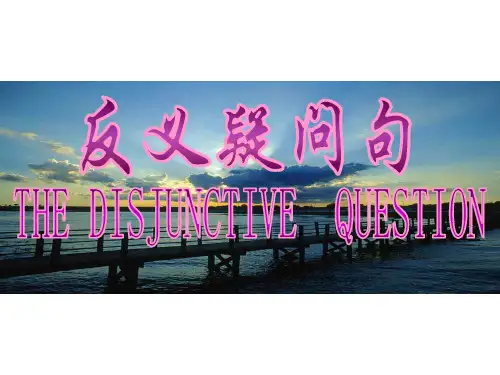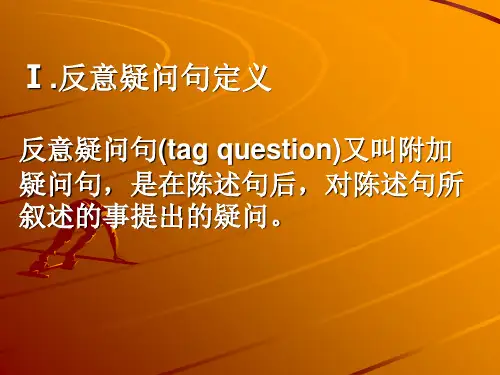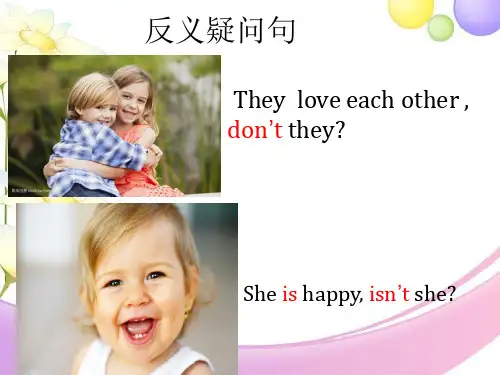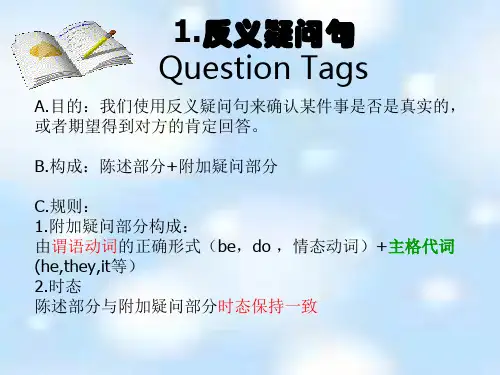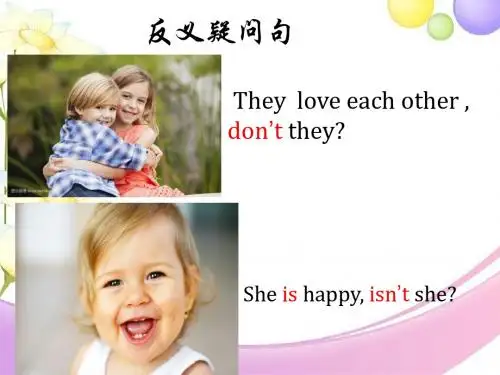八年级英语冀教版反义疑问句PPT优秀课件
- 格式:ppt
- 大小:1.06 MB
- 文档页数:7
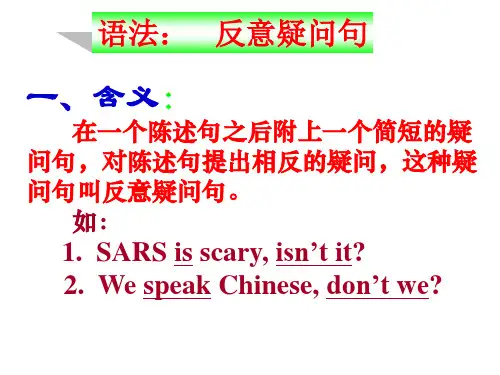
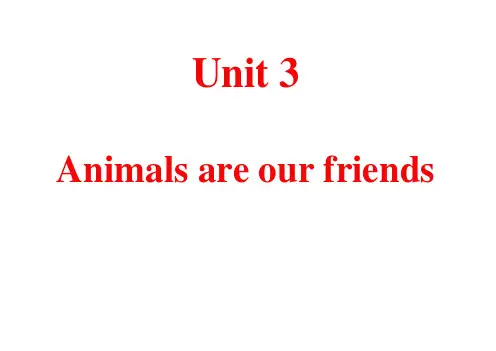
Unit 3 Animals are our friends反意疑问句一、反意疑问句的概念:反意疑问句也叫附加疑问句,指的是在陈述句后面附加一个简短的一般疑问疑问,用于对陈述句所说的事实或观点提出疑问或表示证实。
二、反意疑问句的结构:陈述部分为肯定式时,疑问句部分用否定式;陈述部分为否定式时,附加部分用肯定式。
Youare from Australia, aren9t you? He doesn't live In Beijing, does he?三、反意疑问句的缩写问题及主语问题。
当反意疑问句的附加部分为否定式时,习惯上只用缩写形式,不能分开来写,同时反意疑问句部分的主语应与陈述部分主语一致,且只能是代词,不能是名词。
(there be 除外)is I isn9t was / wasn9t can I can9* does / doesn^t did / didn't have / haven9t are / aren*t were / weren9t do / doiftwill I won't has / hasn'tI、反意疑问句的注意事项(一)、陈述句部分出现no / nobody / nothing / few / little / never / seldom / hardly 等表示否定意义的词时,反意疑问部分应用肯定形式。
1.Li Ming has no brothers or sisterfops he ?2.He saw nothing strange in the skvflicl he?3.You've never been to Beijing, have you?4.There is little milk in the glass, is there ?5. ob has few friends in China, does he ?6. Jim can hardly move his leg, can he ?7. Lily seldom watches TV on Sunday,does she 9■(二)、祈使句不管肯定还是否定,其反意疑问一般都是will you?Open the window, will you?Don't go out alone at night, will you?以Let携开头的祈使句,其反意疑问句为shall we?如:Lefs go swimming, shall we? (三)、反意疑问句的回答对反意疑问句的回答,无论问题的提法如何,如果事实是肯定的,就用yes,事实是否定的,就要用n。
